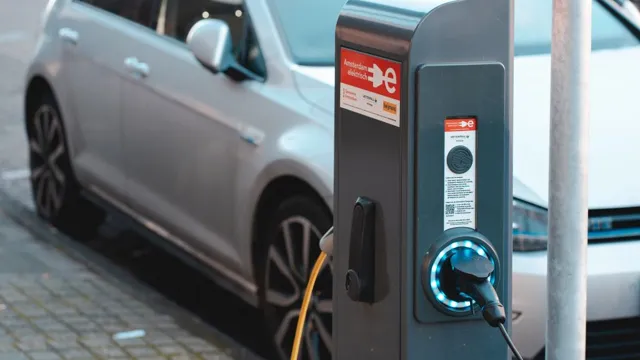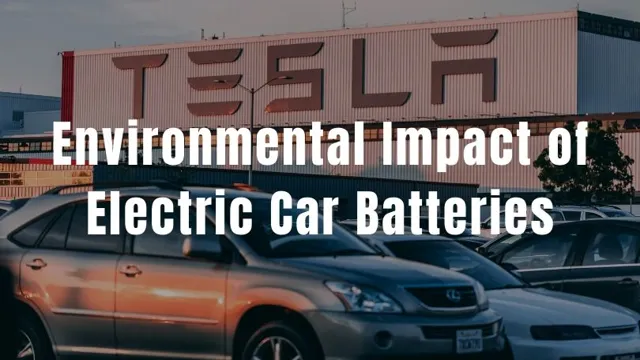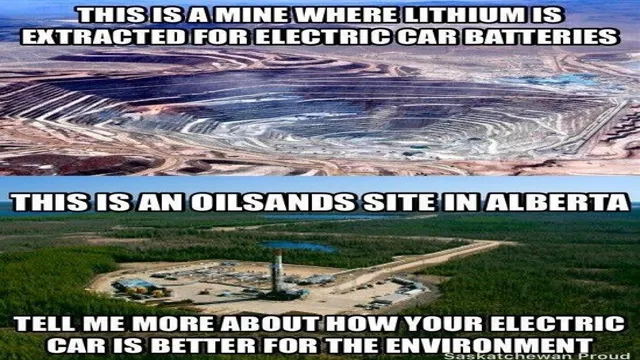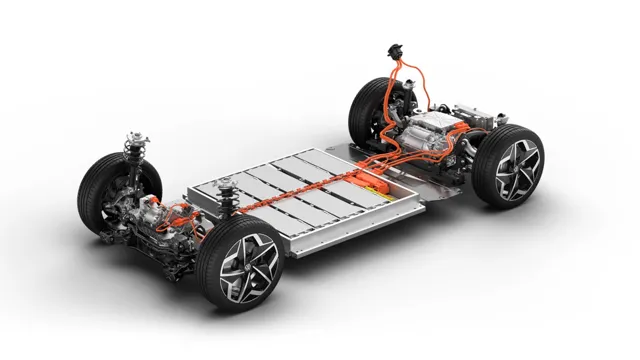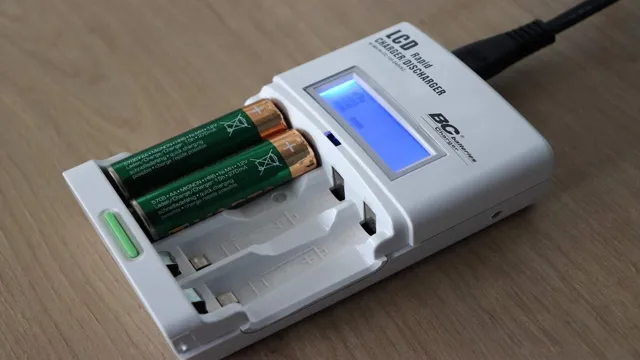Debunking the Myth: Does Battery Charging for Electric Cars Really Cost Money?
Driving an electric car comes with many benefits, such as lower emissions and reduced fuel costs. However, one of the concerns that may linger in the back of an owner’s mind is the cost of charging the car’s battery. After all, electric cars are still a relatively new technology, and charging costs are not always clear.
This is especially true for those who are used to paying for gas on a regular basis. But worry not, we are here to help you understand the charging costs of electric cars. The cost of charging an electric car can vary significantly depending on where you live, the type of electric vehicle that you own, and the type of charging station you use.
It’s important to note that while some charging stations may be free, others might come with a fee. Moreover, the amount you pay per kilowatt hour (kWh) can vary depending on the time of day, and how quickly you need your car charged. There are also certain factors that might determine how much it costs to charge an electric car.
For instance, the size of the vehicle’s battery is a significant factor in determining the cost of charging. In general, a vehicle with a smaller battery will cost less to charge than one with a larger battery. Additionally, another factor that can affect cost is the efficiency of the car.
A more efficient car will require less power and thus cost less to charge. In general, charging an electric car is usually less expensive than filling up a traditional car with gas. According to one recent report, charging an electric vehicle at home with a level 2 charger costs an average of $0.
10-$0.20 per kWh. This results in a total cost of around $10 to $20 for a full charge.
Factors Affecting Charging Costs
Yes, charging electric car batteries does generally cost money. However, the cost of charging can vary depending on a number of factors. Firstly, the method of charging will affect the cost.
Charging at home using a standard domestic power source will likely be cheaper than using a public charging station. Additionally, the cost of charging can vary depending on the time of day and the demand for electricity in the area. Some public charging stations offer discounted rates during off-peak hours when demand for electricity is lower.
Finally, the cost of charging can also depend on the type of electric car and the battery capacity. Larger battery capacities will require more energy to recharge, which will result in a higher cost. It’s important to research charging stations and their pricing structures before making a decision on where to charge your electric car.
Electricity Rates
Electricity rates are a crucial factor to consider when it comes to charging an electric vehicle. Charging your vehicle at home is usually the cheapest option, but it’s essential to understand how electricity rates work and what affects them. The primary factors that can affect charging costs include the time of day, electricity demand, and your location.
For example, charging your car during peak hours when electricity demand is high will result in higher electricity rates. On the other hand, charging your vehicle during off-peak hours when electricity demand is low can significantly reduce charging costs. Additionally, electricity rates may vary depending on your location since different states have different regulations and pricing structures.
Understanding these factors and taking advantage of off-peak hours can save you significant amounts on your electricity bills while keeping your electric vehicle charged and ready to go at all times.
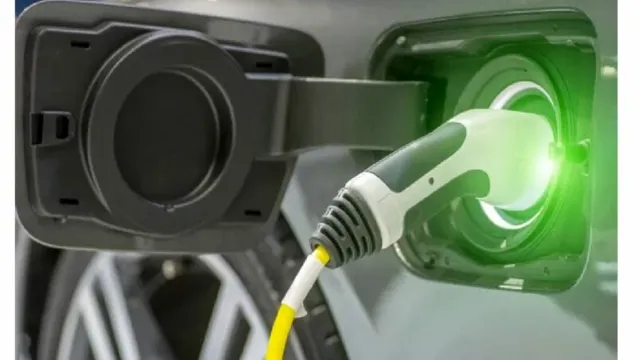
Battery Capacity
When it comes to electric vehicles, battery capacity plays a significant role in determining the charging costs. The larger the battery capacity, the more you’ll have to pay for charging. Additionally, the type of charger used and the charging speed can also affect the cost.
Using a fast charger may charge your battery quickly, but it can be more expensive than using a slower charger. Other factors that may affect the charging costs include the time of day, the location of the charging station, and the electricity rates in your area. Therefore, it’s essential to consider these factors before charging your electric vehicle to avoid any surprise costs.
As electric vehicles become more mainstream, it’s crucial to be aware of the charging costs and factors that affect them to make informed decisions that will save you money in the long run.
Charging Methods
When it comes to charging electric vehicles, there are several factors that can affect the cost. One of the main factors is the charging method used. Different charging methods, such as Level 1, Level 2, and DC fast charging, can have different costs per kilowatt-hour, which can lead to varying charging costs.
Another factor that can affect the charging cost is the time of day when the vehicle is being charged. Many utility companies offer time-of-use pricing, which means the cost of electricity can be lower during off-peak hours, and higher during peak hours. Therefore, charging during off-peak times can help reduce the charging cost.
Additionally, the location of the charging station can also affect the cost. Some charging stations may charge a flat rate, while others may charge based on the time spent charging or the amount of electricity used. Thus, it’s essential to consider these factors when estimating the cost of charging an electric vehicle to avoid any shockingly expensive bills.
Cost Comparisons
“Are you wondering if battery charging for electric cars cost money? The answer is yes, but the cost can vary depending on various factors. The main factor that affects the cost of charging an electric car is the cost of electricity in your area. The rates charged for electric car charging can differ from place to place, just like the rates for gasoline vary in different regions of the world.
In some areas, electric car charging is free, while in others, it costs per kilowatt-hour. Also, electric cars tend to have different charging rates based on their battery capacity and the type of charging station used. Some charging stations are faster and therefore more expensive than others.
It’s essential to note that the cost of fueling an electric car is generally cheaper than fueling a conventional car. Many factors, such as energy efficiency and low fueling cost, make electric cars the right choice for people who want to save money in the long run.”
At Home Charging vs Public Charging Stations
When it comes to electric vehicle charging, there are two primary options: at-home charging and public charging stations. While at-home charging may seem like the most convenient option, it’s important to consider the cost comparisons between the two. Public charging stations typically charge by the kilowatt-hour (kWh), with rates ranging from around $0.
15 to $0.50 per kWh. On the other hand, the average cost of electricity for residential use in the United States is around $0.
13 per kWh. This means that in most cases, public charging stations are more expensive than at-home charging. However, it’s important to factor in any additional fees or memberships associated with using public charging stations.
Some stations may have upfront costs or require a monthly subscription fee, which can add up over time. Ultimately, the best option depends on individual use and needs. If the convenience of at-home charging outweighs the cost savings, it may still be the preferred choice.
Electricity Costs vs Gasoline Costs
Electricity vs Gasoline Costs: Which is Cheaper? When it comes to the cost of running our vehicles, there’s always a debate between using gasoline or electricity. While gasoline has long been the go-to fuel for vehicles, advancements in technology have made electric cars more viable than ever before. So, which is cheaper? It depends.
In some areas, electricity is significantly cheaper than gasoline, but in others, it’s still more expensive. Additionally, the cost of an electric car is often more than a traditional gasoline-powered car upfront, which can offset any savings from fuel costs. However, over time, as battery technology gets better and economies of scale kick in, electric cars may become the more affordable option.
Ultimately, the cheapest option will depend on your particular circumstances – where you live, how much you drive, and whether you’re willing to make the upfront investment in an electric vehicle.
Reduce Charging Costs Tips
As electric cars become more popular, many people want to know if they have to pay money to charge them. The answer is not always straightforward. While some charging stations require payment, others are free to use.
However, even if you have to pay for charging, there are ways to reduce your costs. One option is to charge during off-peak hours when electricity rates are lower. You can also shop around for the best rates at different charging stations.
Another way to reduce charging costs is to invest in a home charging station. This allows you to charge your car at home, where you can take advantage of your existing electricity plan and potentially save money. With a little planning and research, charging your electric car doesn’t have to be expensive.
Use Time-of-Use Electricity Rates
If you own an electric vehicle (EV) and are looking for tips to reduce charging costs, one effective strategy is to switch to time-of-use electricity rates. These rates vary based on the time of day, with higher costs during peak hours and lower costs during off-peak hours. By adjusting your charging schedule to take advantage of off-peak rates, you can significantly reduce your charging costs without compromising your driving habits.
For example, you could set your EV to charge during the late evening or early morning hours when rates are typically lower. This way, you not only save money but also contribute to reducing the stress on the grid during peak hours. With this strategy, you can have the best of both worlds – cost savings and sustainability.
So, check with your electricity provider today to see if they offer time-of-use rates and start planning your charging schedule accordingly.
Switch to Level 1 Charging
If you’re looking to cut down on charging costs for your electric vehicle, consider making the switch to level 1 charging. Level 1 charging uses a standard 120-volt outlet which is the same outlet you use to charge most devices in your home. This means that you won’t need to install any special equipment, and you’ll save on the cost of purchasing a level 2 charging station.
The downside to level 1 charging is that it’s much slower than level 2 charging, and it can take up to a full day to fully charge your electric vehicle. However, if you have a regular schedule and can leave your vehicle charging overnight or during the day while you’re at work, this option can be a cost-effective alternative to level 2 charging. Just remember to keep in mind that level 1 charging may not be suitable for longer road trips or for those who need a quick charge.
Overall, switching to level 1 charging can be a simple and effective way to save on charging costs for your electric vehicle.
Conclusion
In conclusion, while it may seem like charging your electric car battery should be free since you’re not filling up at a gas station, the reality is that it does indeed cost money. However, with the increasing availability of charging stations and advancements in technology, the cost is becoming more and more affordable and convenient for electric car owners. So while you may not be spending money on gas, it’s still important to budget for charging costs if you want to power up your ride and keep moving forward into the electric future.
“
FAQs
How much does it cost to charge an electric car battery?
The cost of charging an electric car battery can vary depending on your location and electricity rates. On average, it can cost anywhere from $5 to $15 to fully charge an electric car.
Can you charge an electric car battery for free?
In some locations, there are free charging stations available for electric cars. However, these locations are not always convenient and may require you to wait in line for a charging spot.
Is it cheaper to charge an electric car battery at home or at a public charging station?
Generally, charging an electric car battery at home is cheaper than using a public charging station. Public charging stations may have higher electricity rates or additional fees.
How long does it take to fully charge an electric car battery?
The time it takes to fully charge an electric car battery can vary depending on the type of charger and the size of the battery. It can take anywhere from 30 minutes to several hours to fully charge an electric car battery.
